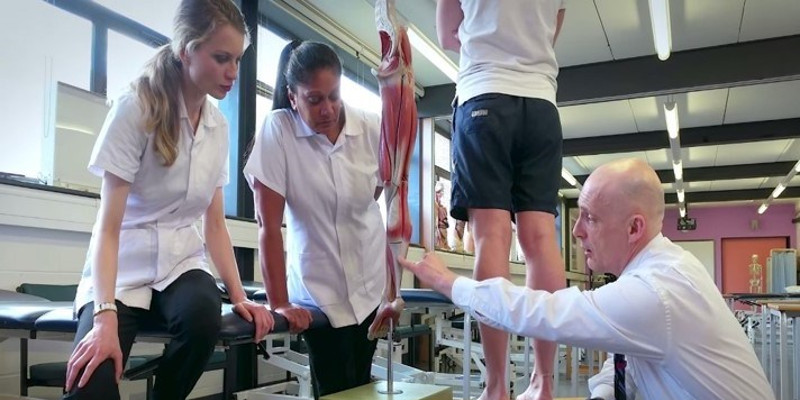We have launched a programme of support for small, specialist and vulnerable health education disciplines in higher education.

Graduate careers in health are a lot more varied than simply becoming a nurse or a doctor. There are some fantastic career opportunities in smaller specialisms which many people are not aware of.
Not only are the jobs really rewarding for professionals because they transform people’s lives, but they are in great demand. For those who have graduated from courses in these disciplines, employability is around 95 per cent.
But not enough people are aware of these opportunities, and many of the degree courses could do with a boost in numbers - to fill in high vacancy rates in the NHS and meet future workforce needs.
This is why we have launched a programme of interventions to support small, specialist and vulnerable health education disciplines.
On 21 March we ran a launch event, kindly hosted by the University of Salford – an appropriate venue as Salford delivers courses in podiatry and prosthetics and orthotics, two of the four disciplines targeted in this programme.
Over three-quarters of providers of the four disciplines attended the day, alongside representatives of the College of Podiatry, the Society and College of Radiographers and the Council of Deans of Health.
A day of positive engagement
It was a valuable day and I was delighted to see such positive engagement from providers and sector bodies. One of the key objectives was to get different universities and specialities to speak together, to share their experiences and good practice, and we certainly achieved that.
For example, as part of the programme, some funding is available to support small-scale innovative projects in recruitment or delivery of podiatry and therapeutic radiography, and delegates were soon very engaged in discussions on possible proposals.
The presentations by higher education institutions highlighted some inspiring initiatives:
Lauren Fantham from Kingston and Saint George’s spoke about her institution’s work on retention, with two initiatives in particular:
- creating a sense of identity and belonging among students, both before they start at university and when they are on placement
- developing students’ communications skills to prepare them for the professional behaviours expected of them on placements.
John Corish of Liverpool University presented two initiatives funded through a HEFCE programme, NCOP (National Collaborative Outreach Programme), which aims to increase widening participation from young people from disadvantaged backgrounds.
The Liverpool regional programme, which he is heading, is a collaboration between 12 universities and further education colleges in the Liverpool region.
The two projects he presented are:
- increasing young people’s understanding of the variety of higher education health courses available and the careers they lead to;
- working with young men identified by their schools as high achievers but with no expressed intention to progress to higher education, to increase their confidence and build their aspirations to progress to higher education, including in healthcare.
Throughout the day, representatives of the professions and the teaching institutions rekindled conversations with colleagues they knew, or started new ones with representatives of other disciplines.
In the afternoon workshop, they focused these conversations on possible bids for the Challenge Fund which has been set up to support small scale innovative projects which enhance recruitment or delivery of small specialist healthcare education disciplines.
The deadlines for submitting the proposals are 23 April (individual provider bids) or 30 April (for collaborative project bids).
I very much look forward to reading about a number of exciting ideas!

Comments
Report this comment
Are you sure you wish to report this comment?